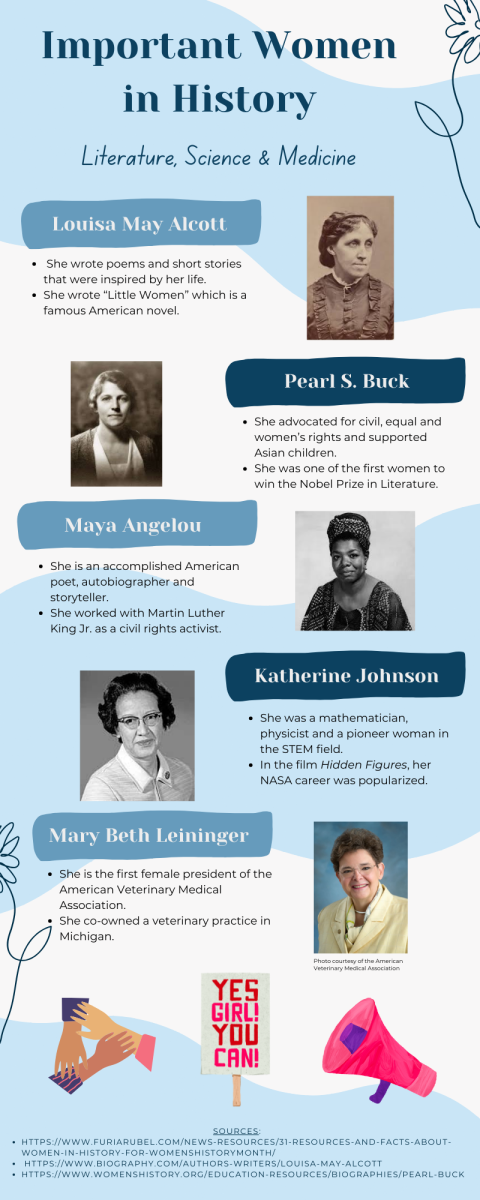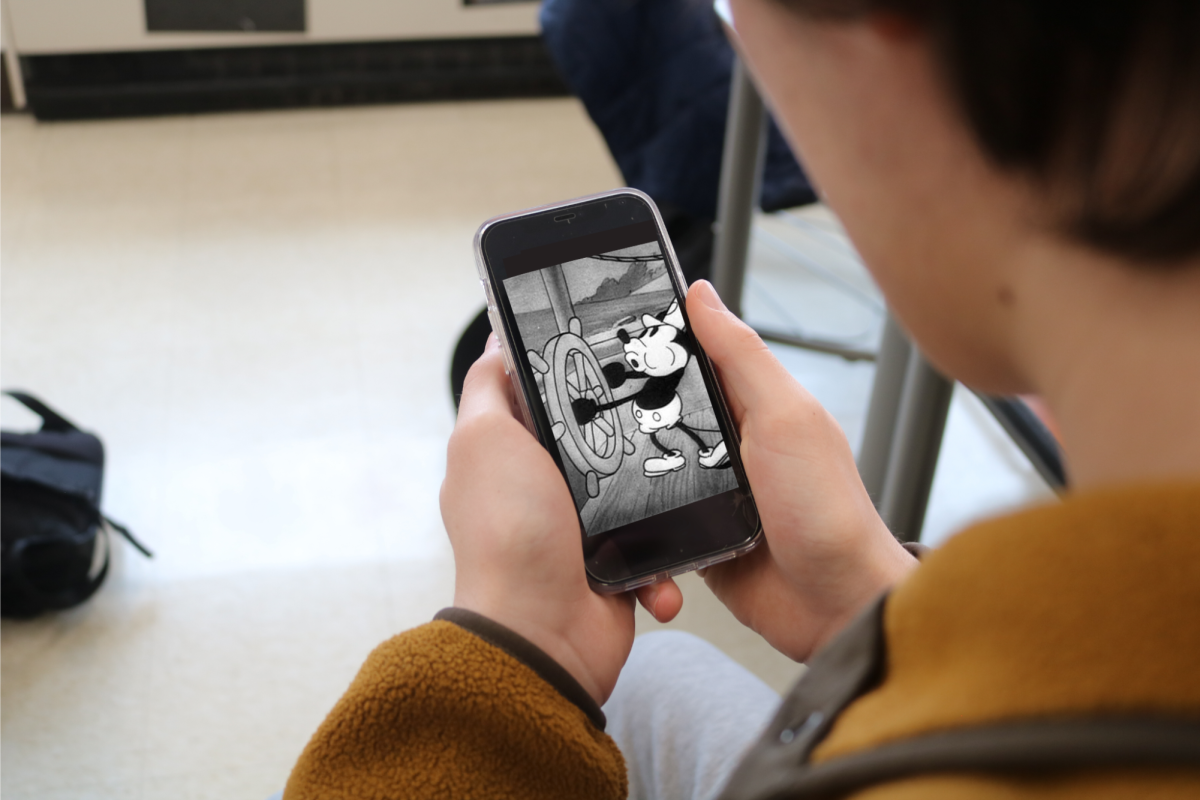With the use of social media becoming more popular year by year, it is becoming increasingly easier to disappear behind the screen and become an entirely different person. The most used — or, more accurately, misused — among these sites include Facebook, Twitter, Tumblr, Pinterest, Vine, and Instagram.
“It’s easy to hide behind a computer. You can say what you want to say; it’s easier to post things when no one can actually see your face,” school psychologist Margaret Norton described.
Nowadays, 81% of teens use some kind of social media, according to Pew Internet Project research September 2012. That number alone can dictate how people handle themselves online. The more people that join, the more reason to hide someone’s true self because of the possibility that others will judge him or her based on something simple like a post on Facebook or Twitter. Since the number of those handling social media has gone through the roof, the pressure of how someone presents him or herself has gone up accordingly.
“People can lie about themselves on social media just so they seem appealing to others. Masses of society are too concerned about their image and how others perceive them,” sophomore Kristine Chi said, who is active on Twitter, Facebook, Instagram, and Pinterest.
The types of messages and pictures someone posts are looked at critically by the amount of followers one possesses. If someone’s life seems interesting based on a status one posted on Facebook or a tweet about something funny that happened to him or her, then that person will surely get attention, and for most people present on social media, that’s a good thing. Additionally, the amount of followers someone has reveals the kind of person one is. For most people, the more followers, the better. Basically everything people include in their profile can be scrutinized by someone out there, and that is enough for someone to feel tempted to act differently online.
“Many people are dictated by the rules of society and they lie just to fit in. However I still believe that social media can show someone for who they really are. It just depends on the person,” Chi shares.
Most commonly, people will lie about their age in order to conceal it, or more accurately, to attract more people by appearing older. If someone is older, he or she will draw a larger crowd to his or her personal page, since this allows for a larger age-range to be attracted to one’s profile. Nearly half of teenagers have lied about their age online, according to Mashable, most likely because some social media sites have an age requirement.
“I’ve lied about my age for Facebook,” Chi admitted. “Many people lie about their age on Facebook just because they want one. It’s easy to use a random birthday year because no one checks if the information you’re inputting is accurate.”
Social media may have its flaws, but perhaps the people who lie on it are exactly who they show themselves as: liars. It’s clear that someone has exaggerated when, as said before, the age is not true or when white lies have been drizzled in a story told on social media. For example, someone may exaggerate something that has happened to them that day to make his or her life seem more interesting and exciting.
“If they’re lying then you know that they’re a lying type of person whereas someone simple will be clear and simple like who they are,” junior Barbara Garcia-Stam explained.
Or those who over-think how others perceive them are seen through the same negative light on social media. Society causes people to behave as others want them to behave, and that can definitely spark lies and exaggerations.
“I think there is pressure to look a certain way or to act a certain way and portray yourself a certain way but it also depends on who you are as a person. Some people don’t care so much about that but if people do care a lot, that can affect them,” Ms. Norton stated.
What motivates teenagers to exaggerate about themselves online exactly? Coming at a time where fitting in is all that matters, the answer shouldn’t be a surprise.
“A person may exaggerate via social media to help boost their confidence, receive attention from peers, or to keep up with their friends or acquaintances,” school psychologist Marissa Frederick explained.
How to Use Social Media Wisely
On the other hand, it is possible to use social media wisely, and some people have been seen to do this.
“The initial goal of social media was to allow everyone to express themselves freely,” Chi expressed. “I think my profile clearly shows what kind of person I am.”
Social media can be handled tastefully, it just depends on what type of person one really is. Again, if someone is the type to care somewhat about what others think about him or her, then that can be enough incentive to virtually change him or herself entirely.
“Social media accurately portrays a person if he or she wants it to, but in other cases, social media may portray the ‘best version’ of people,” Ms. Frederick said.
The various pressures of society can cause one to be concerned with self-image and that is the driving force to the offsets of someone on social media, but perhaps even by lying, someone might not appear how one wants to.
“I think people can express themselves and their opinions on social media but you can also portray yourself in a way you weren’t intending to by posting certain pictures or writing certain things that maybe people would interpret in a way you didn’t mean,” Ms. Norton highlighted.
Expressing oneself is necessary to teenagers to live a healthy and balanced life, but the problem is misuse of these outlets. Needing an outlet to let out someone’s anger or frustration is a problem for teenagers especially, and many take to social media to let it out. Some information may end up becoming too personal, and often times people are seen to be too comfortable with sharing things online that they would never share in person.
“Sometimes teenagers — or people in general — can get too comfortable with social media and overshare private information,” Ms. Frederick said.
But social media does not have to get so personal and it does not have to be so misused. It can be a good tool in spreading the word of a certain cause. Take the ALS ice bucket challenge, for example. If one went on any social media site, then that person would find videos and posts everywhere to help the cause. This is a way in which social media can be used wisely.
“I think it [social media] can be a good tool but it can also be easily misused and it can be detrimental to some people if it is misused. It’s also a good way for people to raise awareness to certain causes and share your opinions if you do it in a healthy and appropriate way,” Ms. Norton explained.
The Incentives to Lie
Teenagers especially are found to misuse social media because of the pressures that society places on their shoulders nowadays. In addition to that, when one is an adolescent, one doesn’t truly know him or herself yet. This is the time in someone’s life when one is trying to discover him or herself because one’s likes and dislikes are not fully known or developed yet.
“When you’re a teenager, that’s a time in your life when you’re trying to find out who you are: you’re changing, there’s lots of different peer groups, and you just want to try to fit in. You’re trying to figure out who you are as a person and it’s easier to succumb to pressure so you might be in a more vulnerable state in your life,” Ms. Norton said.
But is society necessarily to blame? Or do teens harbor some of the blame of the lies and distortions seen online? In most cases, both play some part in the issue.
“I think society has played a big part in the distortions teenagers make of themselves on social media, but many teens have also grown up using or being exposed to social media so they have developed their own tendencies as well. Everybody has played a part in those distortions,” Ms. Frederick said.
There’s also the pressure of their peers and having celebrities on the same social media as they use. When kids see their favorite athlete or actor posting about something, then they would feel the need to do the same in the same way that one would take to dressing or acting like a person someone idolizes.
“Teenagers might feel pressured because of their peers’ presence on social media because they want to fit in, or maybe by their favorite athlete or celebrity’s presence on social media because they want to emulate them,” Ms. Frederick explained.
What comes out of these pressures isn’t pretty. Social media can cause common mental disorders like anxiety or depression from all the pressure from the different sources. “Smiling depression” — people who do not appear depressed in real life but actually are — is a term that is increasing in use, according to Psychcentral, the world’s largest and oldest mental health social network. Look at the students around. They may appear content but for some of them that might not be the case. The pressure on, say, Instagram to look a certain way, dress a certain way, go to certain places, and hang around certain people is enough for someone to struggle with self-image, which would then trigger depression and the like.
“When social media begins to take over someone’s life — posting statuses, pictures, etc. at all hours of the day and in all situations, that sort of behavior might be detrimental to a person’s social-emotional health. That person might not be truly present when spending times with their friends and family, so they may struggle to have meaningful conversations/relationships with people because they’re so busy checking and posting things via social media,” Ms. Frederick illustrated.
Life Without Social Media
Most importantly, how would life be different without social media? Would teenagers act the same, and is social media the cause of the situations where people act differently?
“It’s hard to say how people would be different without social media, since it has such a presence in most of our daily lives. It’s possible that relationships with peers or family members might be different — we might have more face to face conversations, or have to catch up with one another in other ways besides Facebook and Twitter,” Ms. Frederick said.
The face-to-face contact in everyday life is important. Human touch can be seen to not only make people feel good, but also improve mental-social health. A simple pat on the shoulder or hug can alleviate pain and stress hormones, or even help fight against mental disorders, according to Seattle Times. These interactions are not possible online, and that’s what makes it so detrimental to one’s health, especially if someone spends more time on social media contacting others than in real life.
“People would be forced to talk in person more and do more face-to-face [if there was no social media], which I think is a good thing. I think people don’t talk on the phone anymore they just text instead or send messages on Facebook and I think we lack that personal connection from social media,” Ms. Norton decided.




![Mr. Scott Brzezinski poses for a photo while working at ShurWay Moving in Libertyville where his cousin Mr. Eric Brzezinski also works. He appreciates that LHS prepares students for their future by providing a variety of opportunities. “[There are] a lot of different resources that LHS has between colleges and counselors,” he said. (Photo courtesy of Mr. Scott Brzezinski)](https://www.lhsdoi.com/wp-content/uploads/2025/02/Mr.-Scott-Brzezinski-Photo-2-1200x1200.jpg)


